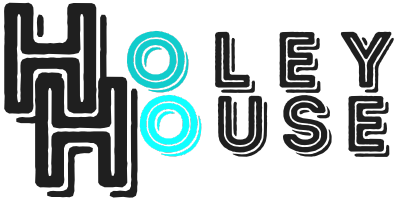The Fracturing of Trust: How Incestuous Abuse Distorts Our Ability to Love and Be Loved
Incestuous child sexual abuse doesn’t just steal a child’s innocence—it steals their foundation. When the people meant to protect and love you become the ones who violate you, the world splits. Up becomes down. Safe becomes dangerous. Love becomes manipulation. What’s left is a soul struggling to make sense of a reality that was never safe to begin with.
I know this kind of betrayal.
I lived in it.
I loved the ones who hurt me. I trusted them before I knew what trust even meant. And that’s what makes incest so particularly damaging—it happens in the very place that’s supposed to be your first home: your family, your blood, your roots.
When the People You Belonged to Break You
In a world where most people grow up believing their parents are the safest place in the world, survivors of incest learn the opposite. We learn early on that safety is a lie. That love can harm. That closeness can cut deep.
Trust isn’t just broken in the wake of incest—it’s annihilated. It becomes dangerous to believe anyone. And even more dangerous to believe ourselves.
What I came to understand is this:
Incest survivors often don’t just mistrust others.
We mistrust ourselves.
We question our own memories. We silence our intuition. We confuse manipulation for love because that’s what was modeled. This isn’t a flaw in us—it’s a wound that was wired in.
Here’s what that wound can look like:
Trust Becomes a Trigger
When the very people who claimed to love us used that love to control, touch, or torment us, our definition of love becomes contaminated. So when someone genuinely offers care later in life, we may flinch, freeze, or flee. It feels unsafe—because in our nervous system, it is.
We Struggle to Read Safety
The compass inside us—our ability to sense danger or security—got scrambled. Some of us become hypervigilant, unable to relax or feel safe even in healthy relationships. Others keep walking into the fire, repeating toxic dynamics because they feel familiar. Familiarity isn’t safety. But trauma doesn’t always know the difference.
We Mistrust Our Own Worth
If the ones who were supposed to cherish us instead used us, we begin to believe we’re only valuable when we’re needed, when we’re pleasing, when we’re quiet. We learn to question if we’re worthy of love that doesn’t cost us our bodies, our voice, or our peace.
Intimacy After Incest: When Touch and Love Feel Like Traps
So many of us carry the silent ache of wanting to be close to someone—but being terrified of what that closeness might mean. We may yearn for love, but shut down when it shows up. We may long for emotional intimacy, but stay behind thick walls because it feels too risky to be seen.
I’ve experienced:
- Avoiding relationships altogether because they felt too unsafe.
- Sabotaging connections that started to feel too real.
- Gravitating toward emotionally unavailable people who mirrored my earliest attachments.
- Being unable to communicate my needs out of fear I’d be punished, rejected, or misunderstood.
This isn’t “relationship anxiety.”
This is trauma.
This is the aftermath of love being used as a weapon.
But Here’s the Truth I Had to Relearn:
It was never my fault. I didn’t deserve what happened to me. And I am capable of learning how to trust again—starting with myself.
The Journey Back to Trust Begins Inside
Rebuilding our ability to trust—to be close, to be vulnerable, to be safe with another human being—starts with unlearning everything we were taught in the darkness of our trauma.
Here’s what that path has looked like for me—and what it might look like for you:
Safe Space with a Trauma-Informed Guide
Therapists who understand incest trauma can help us untangle the knots in our nervous system. Through EMDR, somatic work, and compassionate presence, they walk beside us as we rewrite the story.
Practicing Self-Trust
Every time I listen to my body’s no…
Every time I honor my inner child’s discomfort…
Every time I name what I feel without shame…
I rebuild the bridge between me and me.
Creating (and Enforcing) Boundaries
Boundaries are how we keep ourselves safe today—even if no one protected us then. And they’re not just walls—they’re gates. They let the right people in, and keep the harmful ones out.
Letting Love In—Slowly, Gently, On Our Terms
Not all love hurts. But we have to learn how to recognize the kind that doesn’t. We get to take our time. Test the waters. Speak up. Pull back when we need to. The right people won’t punish us for that.
Showing Up for Ourselves With Compassion
This healing isn’t linear. There will be days you want to run. Days you fall into old patterns. Days you feel like giving up. Please—don’t. Be gentle. Be curious. Keep coming home to yourself.
A Final Word, From One Survivor to Another
Incest fractures our trust, distorts our relationships, and leaves us believing that closeness will always hurt. But that’s not the end of our story.
You are not broken beyond repair.
You are not too much, too damaged, too far gone.
You are learning to live in a world that once made no sense.
And that takes courage.
The more we heal, the more we remember who we were before the betrayal.
And piece by piece, we build something truer.
Something safer.
Something worthy of the love we’ve always deserved.
You can trust again.
But first, trust this:
You survived the worst of it.
Now, you get to learn how to live.

0 Comments